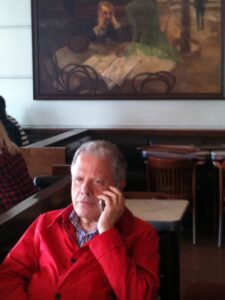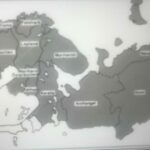“USSR was putting our soldiers in the first rows, because we can run trough the bullets”, says kazak Professor in Varna Congress, while taking my fingers in his scars on the head and shoulder. “Each of us values 20 Russian soldiers”, continues remembering also Afghanistan war. Kazaki are very proud of theirselves and of their country. And not only for their past of Mongol and Turkish empires, but also for the new capital Astana, now Nur Sultan, planned by Japanese architects for now and its future 25 years development. Walking through impressive innovative buildings, in the evening covered by images remembering the San Francisco of Blade Runner, you feel the dramatic acceleration of the country from desert to Mars. A country large about as EU, with only 20 million people, partly in European geography around Caspian sea and heart of Asia, cross point of cultures and powers from Gengis Khan to Lenin, including the Russian platform to space in Baikonur. A country rich of everything in minerals, 60% of crude oil of USSR, with large grain cultivation, animals growing, until the beautiful apples of Alma Aty, the historical capital. You can sky in Altai mountain, crossing with Chinese high speed trains to the South, visiting beautiful Caspian sea.
As all the “STAN” countries of central Asia, it’s necessary to understand that the end of USSR, expected with joy and street dancing in Central Europe, here has been a tragedy, a collapse of the civilian infrastructure builded along 70 years by the Soviet State, an emigration of doctors, teachers, engineers Russian and German descending from thousand of war prisoners here concentrated, a quite impossible management of hospitals, schools, industrial activities, with population returning to clan and tribes as cultural references of the past and generally autocratic regimes, based on strong leaders of major families. Kazakhstan has been one of the more successful in restarting progress and economic development, due to his basic richness and international opening to partnership, by the way very active with Italian big firms and also SME initiatives. Obvious the Geopolitical crucial positioning of this giant, connecting Europe with China, focus of pressures from Russia, Turkey, Iran, China and radical Islam movements, based in Afghanistan. China with its One Belt One Road policy crossed the country with 1500 km high speed railway and roads to join Caspian oil basin, where ENI and Shell operate, to build a Southern Transsiberian to Russian Caucasus.
These critical geopolitical constraints and opportunities seem now to reach a difficult conundrum. Economically the country risk a total prevalence of Chinese State capitalism and bitcoin producers, but it is part of CSTO, military alliance with the other “STAN” of CSI. Population being 70% muslim, penetration of Isis from Afghanistan is probable, and this can be used from USA agencies strongly against Russian Federation, more than China, creating a new Ucrainian case on Russian border. Turkish and Iranian ambitions are not less strong in influencing the Kazakhstan future, attracted from large natural resources of the country. Kazaki, whose income per capita grew enormously in last ten years and in PPP is already near to 30000$, have of course internal big social differences and some of them look already to more advanced countries. But the hope of avoiding islamic taliban models backing to the past, and contemporarily not becoming Chinese satellite, stays on their shoulders and the sense of proudness to be Kazak. Europe and Italy have enormous opportunities to establish win win partnership, but they cannot continue to be only moralistic, irrelevant and deeply geopolitically absent.




